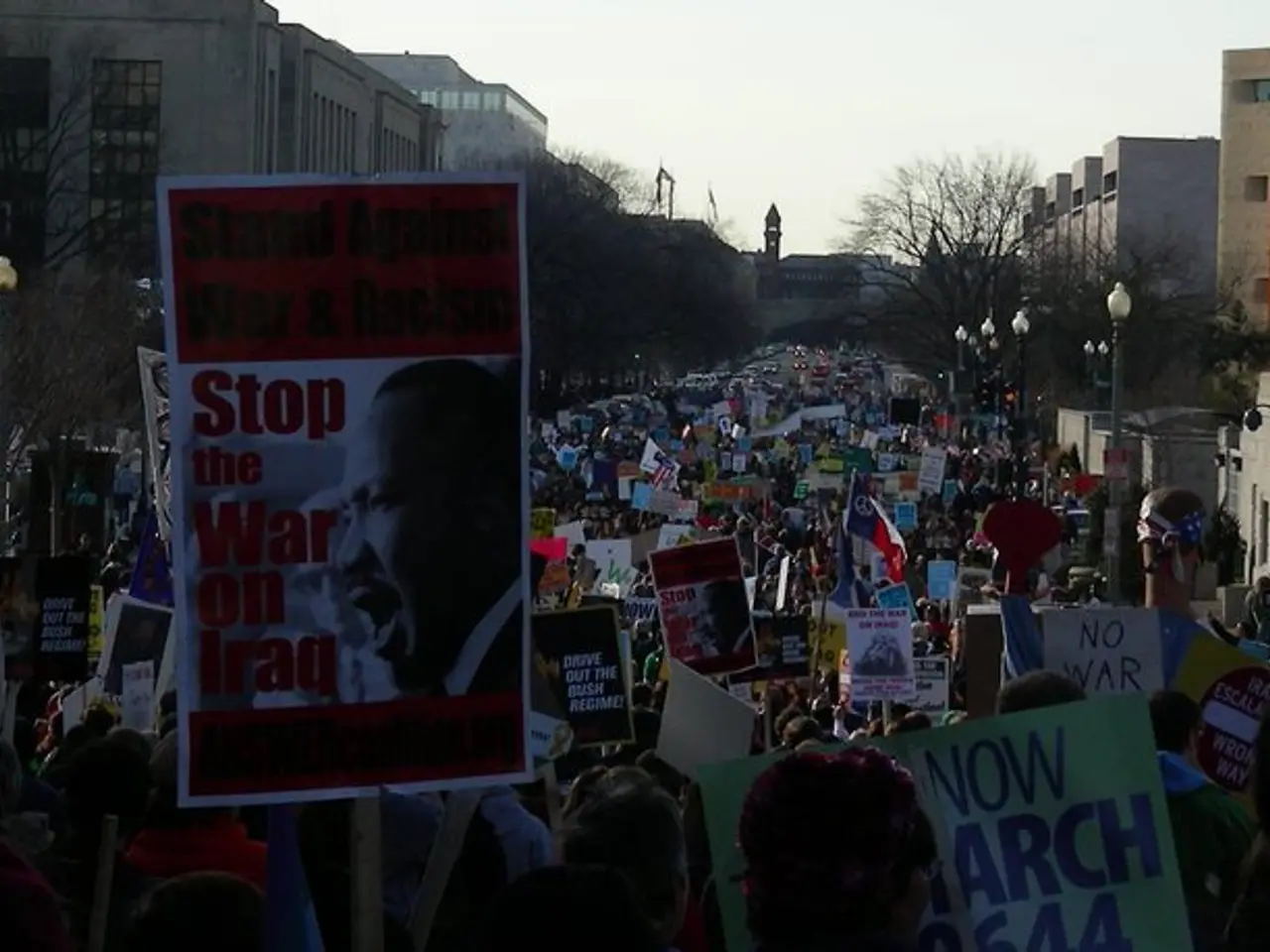UK detains 200 individuals linked to disallowed pro-Palestine organization
In a move that has sparked widespread controversy, Palestine Action was proscribed as a terrorist organisation under the Terrorism Act 2000 on 5th July 2025 [1]. This decision came in response to incidents involving vandalism of RAF aircraft at Brize Norton and a security breach at an air force base in southern England [1][2].
The government's decision has led to over 200 arrests for suspected terrorism offences related to the group, with at least 10 charges reported as of early August 2025 [2]. However, the authorities have emphasised that this enforcement does not interfere with lawful protests supporting the Palestinian cause [2].
The proscription of Palestine Action has been met with criticism from various NGOs, human rights organisations, and legal experts. Amnesty International, Liberty, and the UN Human Rights Chief have expressed concerns that the UK’s terrorism definition is overly broad, potentially risking suppression of free speech [1][3]. The UN Human Rights Chief, Volker Türk, has called the ban a disturbing misuse of counter-terrorism laws, arguing that the UK’s domestic definition expands terrorism to property damage that internationally would not qualify as terrorism [3]. The International Bar Association has described the proscription as a dangerous shift in law [4].
On Saturday, hundreds of people gathered in Parliament Square, bearing signs reading "oppose genocide, support Palestine Action" and other slogans, and waving Palestinian flags [5]. The Metropolitan Police stated that anyone who came to Parliament Square to hold a placard expressing support for Palestine Action was either arrested or in the process of being arrested [5].
A group called Defend our Juries organised Saturday's protests and previous demonstrations against the ban, stating "unprecedented numbers" had risked "arrest and possible imprisonment" to "defend this country's ancient liberties" [5]. A UK court challenge against the decision to proscribe Palestine Action will be heard later this year [6].
Three people have already been charged in the English and Welsh criminal justice system with supporting Palestine Action [6]. Psychotherapist Craig Bell, 39, was among those holding a placard at the protest and branded the ban "absolutely ridiculous" [5].
As this legal and political controversy continues to unfold, the balance between national security concerns and civil liberties remains a significant point of debate in the UK.
References: 1. The Guardian 2. BBC News 3. Amnesty International UK 4. The Independent 5. The Telegraph 6. The Times
- The controversy surrounding Palestine Action's proscription as a terrorist organization under the Terrorism Act 2000 has sparked debates on policy-and-legislation and politics, particularly the balance between national security concerns and civil liberties.
- Amidst the general-news about the proscription, concerns have been raised by NGOs, human rights organizations, and legal experts about the potential for overly broad definitions of terrorism to suppress free speech, resulting in crime-and-justice implications such as arrests and charges.








